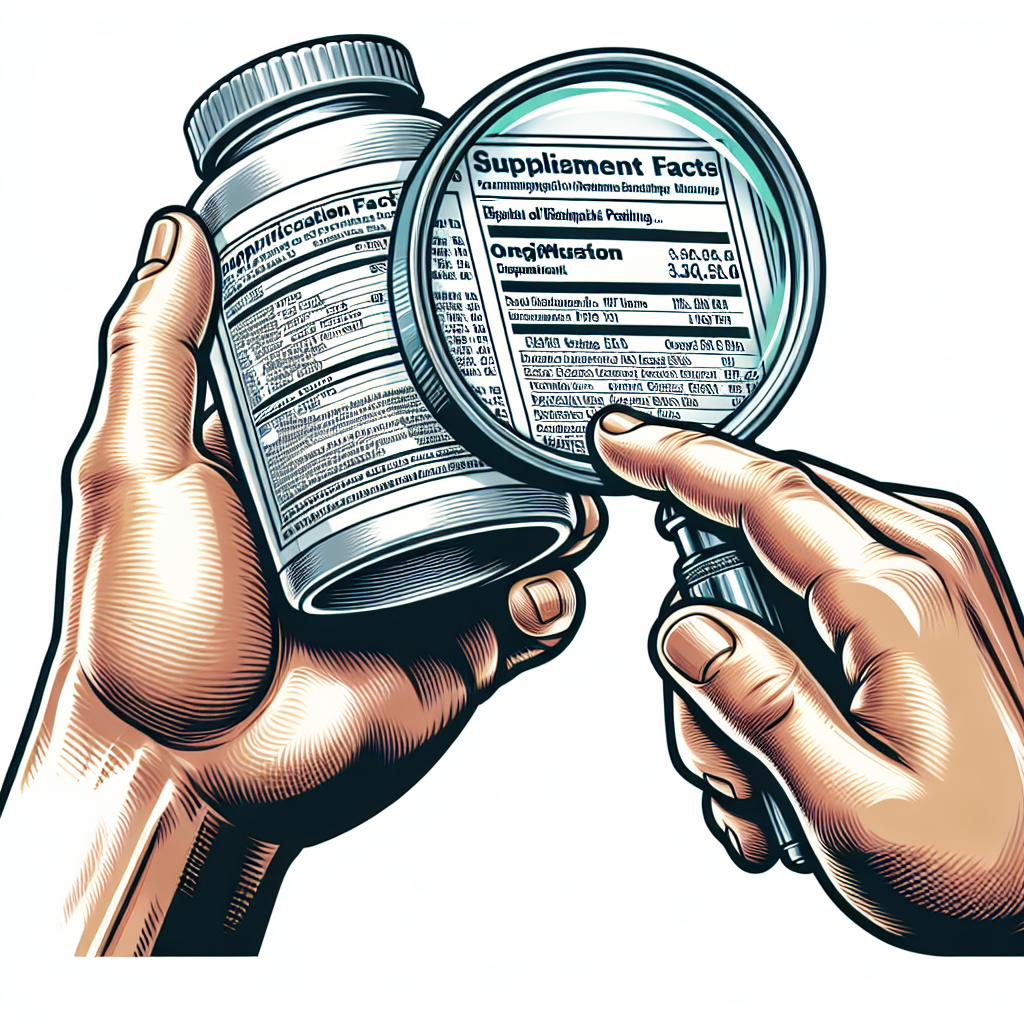In an era where health consciousness is on the rise, dietary supplements have become ubiquitous in the daily lives of millions seeking to enhance their nutrition and overall wellbeing. However, navigating the supplement aisle can be daunting. The questions of which supplements are beneficial, which are necessary, and which are safe remain at the forefront of consumers’ minds. Understanding supplement label accuracy and regulations is crucial in making informed decisions about supplement use. This article delves into the intricacies of supplement labels, the regulatory landscape, and practical tips for consumers to ensure they are selecting high-quality products.
The Importance of Accurate Supplement Labels
Labels on dietary supplements are meant to inform consumers about the contents of the product, including its active ingredients, dosage, and recommended use. Accurate labels are essential because they provide the information needed to compare products, avoid ingredients that could cause adverse reactions, and select supplements that align with one’s nutritional needs or health goals. For example, someone focusing on Cardiovascular Health might look for Omega-3 fatty acid supplements, and accurate labeling will be vital to finding the right product.
Regulatory Oversight of Supplements
In the United States, the Food and Drug Administration (FDA) is tasked with the regulation of dietary supplements. However, unlike prescription medications, supplements are not required to undergo pre-market approval. Instead, the FDA’s role kicks in post-market, monitoring safety and labeling to ensure that products are not misbranded or adulterated. The Dietary Supplement Health and Education Act of 1994 (DSHEA) provides the framework for supplement regulation, emphasizing that manufacturers are responsible for the veracity and safety of their labels before their products reach the market.
Challenges in Standardization
Standardization of herbal supplements is one of the industry’s most significant challenges. Due to the natural variability in plant-based products, it can be difficult to ensure a consistent level of active ingredients. This variability can affect the supplement’s effectiveness and poses a challenge for accurate labeling. Consumers interested in herbal products should read "The Challenges of Herbal Supplement Standardization", which provides insightful context on this issue.
Ensuring Label Accuracy
To ensure the accuracy of supplement labels, the FDA has established Good Manufacturing Practices (GMPs) for the industry. These regulations require manufacturers to test the identity, purity, strength, and composition of their products. However, the adherence to GMPs varies among companies, and the FDA conducts inspections to enforce compliance.
Independent Testing and Verification
Several independent organizations offer testing and verification services for supplement quality. These entities conduct their tests and provide seals of approval to products that meet their standards. Look for these seals on supplement labels as an indicator of quality.
The Role of Education in Supplement Use
Education plays a pivotal role in supplement use. Understanding the potential interactions between supplements and medications is critical, especially for those managing chronic conditions. "Preventing Adverse Drug Reactions Through Education" highlights the importance of being well-informed about the supplements and medications one is taking.
Enhancing Absorption and Effectiveness
Not all supplements are created equal, and their effectiveness can be influenced by various factors, including the timing of consumption and the presence of other nutrients. To maximize the benefits of supplements, strategies to enhance their absorption and effectiveness should be considered. The article "Strategies to Enhance Supplement Absorption and Effectiveness" offers valuable tips in this regard.
External Resources for Further Understanding
To further your understanding of supplement regulations and label accuracy, explore these niche resources:
- Council for Responsible Nutrition: An advocate for the nutritional supplements industry, providing information on supplement science and regulation.
- National Institute of Health Office of Dietary Supplements: Offers fact sheets, educational materials, and current research on dietary supplements.
- ConsumerLab: An independent group providing test results and reviews on supplement effectiveness, quality, and safety.
- U.S. Pharmacopeia: A scientific nonprofit organization that sets standards for the identity, strength, quality, and purity of medicines, food ingredients, and dietary supplements.
- American Botanical Council: Provides education and research on herbal medicine, including quality control and therapeutic uses.
Importance of Pharmacokinetics in Supplement Use
Pharmacokinetics is the study of how a substance is absorbed, distributed, metabolized, and excreted by the body. Understanding the pharmacokinetics of supplements is crucial as it affects their safety and efficacy. The "Importance of Pharmacokinetics in Drug Development" can shed light on how these principles apply to both medications and supplements.
Conclusion
The supplement industry is complex, and the accuracy of supplement labels is a critical factor in ensuring consumer safety and product efficacy. Regulations by the FDA and adherence to GMPs by manufacturers play a vital role in maintaining standards. Consumers must educate themselves and may benefit from independent verification to ensure they are using high-quality supplements. By staying informed and vigilant, individuals can make wise choices that support their health and wellness goals.



